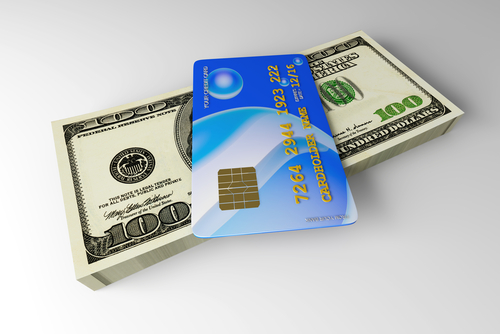Prepaid debit cards are gaining new fans every day. They offer the convenience of a credit card without the danger of mistakenly overdrawing an account and incurring high fees. If there is not enough money in your account for a purchase or withdrawal your request is simply declined. It causes a minor embarrassment -true, but usually without the pain of an exorbitant fee.
About Prepaid Debit Cards
However there are four significant drawbacks to debit cards that all consumers should be aware of:
- Hidden fees: some cards charge your account for calling customer service, if your account is inactive for a period of time, you can be charged for adding money to your account, when you use an ATM or if a purchase is declined.
- Not insured: Unless your debit card account is at an FDIC insured institution your funds are not insured. Should your card company go bankrupt you might lose all the money in your account.
- Lack of regulation: If you and your card company have a dispute there is no agency that regulates the card issuer. This means there is no authority for you to complain to about unfair treatment.
- Lack of protection from loss or theft: Credit cards protect you from losses on your account due to loss or theft after the first $50. Prepaid debit card companies may provide this as a courtesy and could prove difficult or even impossible to enforce.
These issues were revealed in a focus group study performed by the Pew Group, a charitable foundation that is presently working on a project called the Pew Health Group’s Financial Security Portfolio.
However, as scary as these issues are, risk can be minimized by careful comparison shopping for debit cards. The Pew Group focus group on debit cards revealed that few consumers bother to comparison shop for prepaid debit cards. That could prove to be a costly mistake.
The New York Times recently had an article on prepaid debit cards that emphasized the need for comparison shopping. The writer suggests an online tool called NerdWallet that compares 63 prepaid debit cards. They range in annual cost from a low of $37 to a high of $435. Clearly, comparison shopping is worthwhile.
Who Uses Prepaid Debit Cards
Most in the survey group explained they preferred the minimal fees associated with prepaid debit cards to the high penalty fees associated with checking accounts or debit cards linked to checking accounts.
A report by Javelin Strategy & Research revealed:
- 13 percent of United States households use prepaid debit cards
- The cards are popular among members of Generation Y
- Debit cards are popular with those who do not use banks (usually because of poor credit)
Participants in the Pew Focus Group saw direct deposit, a savings option and credit building as wanted features for prepaid debit cards. Most did not want overdraft privileges as they saw it as a way to get into credit trouble.
Since most consumers did not comparison shop for a prepaid debit card they were unaware that several cards offered the features they most want. Choosing a card was normally based on a friend’s recommendation or whatever card was convenient for them to purchase.
Prepaid debit cards are gaining new fans every day. They offer the convenience of a credit card without the danger of mistakenly overdrawing an account and incurring high fees. If there is not enough money in your account for a purchase or withdrawal your request is simply declined. It causes a minor embarrassment -true, but usually without the pain of an exorbitant fee.
About Prepaid Debit Cards
However there are four significant drawbacks to debit cards that all consumers should be aware of:
- Hidden fees: some cards charge your account for calling customer service, if your account is inactive for a period of time, you can be charged for adding money to your account, when you use an ATM or if a purchase is declined.
- Not insured: Unless your debit card account is at an FDIC insured institution your funds are not insured. Should your card company go bankrupt you might lose all the money in your account.
- Lack of regulation: If you and your card company have a dispute there is no agency that regulates the card issuer. This means there is no authority for you to complain to about unfair treatment.
- Lack of protection from loss or theft: Credit cards protect you from losses on your account due to loss or theft after the first $50. Prepaid debit card companies may provide this as a courtesy and could prove difficult or even impossible to enforce.
These issues were revealed in a focus group study performed by the Pew Group, a charitable foundation that is presently working on a project called the Pew Health Group’s Financial Security Portfolio.
However, as scary as these issues are, risk can be minimized by careful comparison shopping for debit cards. The Pew Group focus group on debit cards revealed that few consumers bother to comparison shop for prepaid debit cards. That could prove to be a costly mistake.
The New York Times recently had an article on prepaid debit cards that emphasized the need for comparison shopping. The writer suggests an online tool called NerdWallet that compares 63 prepaid debit cards. They range in annual cost from a low of $37 to a high of $435. Clearly, comparison shopping is worthwhile.
Who Uses Prepaid Debit Cards
Most in the survey group explained they preferred the minimal fees associated with prepaid debit cards to the high penalty fees associated with checking accounts or debit cards linked to checking accounts.
A report by Javelin Strategy & Research revealed:
- 13 percent of United States households use prepaid debit cards
- The cards are popular among members of Generation Y
- Debit cards are popular with those who do not use banks (usually because of poor credit)
Participants in the Pew Focus Group saw direct deposit, a savings option and credit building as wanted features for prepaid debit cards. Most did not want overdraft privileges as they saw it as a way to get into credit trouble.
Since most consumers did not comparison shop for a prepaid debit card they were unaware that several cards offered the features they most want. Choosing a card was normally based on a friend’s recommendation or whatever card was convenient for them to purchase.







